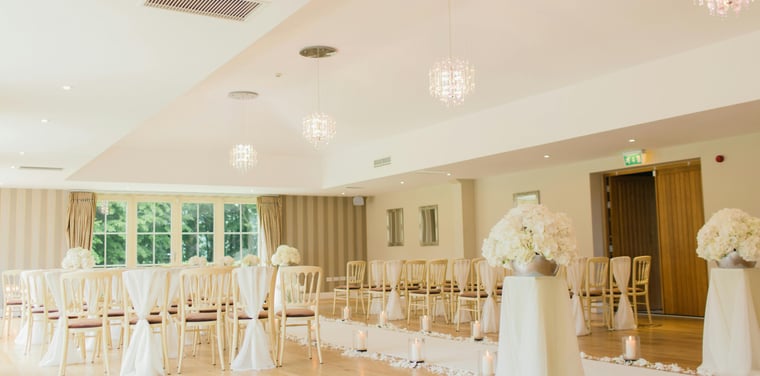Wedding Venues Selection
Explore innovative wedding venue selection research topic ideas for 2025. Discover the latest trends in wedding venues to make your special day unforgettable. Perfect for planners and couples looking to stay ahead!
QUANTITATIVE RESEARCH
Realyn Manalo
5/7/20254 min read


More and more Filipino women today are choosing to live with their partners without getting married. A 2022 survey revealed that 19% of women aged 15 to 49 are in live-in relationships—far more than the 5% recorded in 1993. In contrast, those who chose to get married dropped from 54% in 1993 to just 36% in 2022. For couples like Faye and Jefferson, living together feels just as committed as marriage—but without the pressure of legal ties. They believe it’s a way to truly know each other before saying “I do.” And yet, like many others, they still dream of walking down the aisle one day.
This shift raises a big question: If many still want to get married eventually, what’s stopping them? For some, it's not love—it’s the cost, the pressure, or even the stress of planning the “perfect” wedding. That’s where the venue comes in. Today’s couples want something meaningful, personal, and budget-friendly. But the wedding venue industry isn’t always ready for that shift. With outdated offerings, tech gaps, and rising prices, choosing the right place to say “I do” is harder than ever. This makes it even more important to understand what couples really want—and how the industry can catch up.
Who Can Use These Topics
This research is ideal for students and professionals pursuing the following courses or strands:
College Programs:
BS Tourism Management
BS Hospitality Management
BS Marketing Management
BS in Psychology
BS in Environmental Management
Senior High School Strands:
Accountancy, Business, and Management (ABM)
TVL – Home Economics Strand
General Academic Strand (GAS)
Why This Topic Needs Research
Wedding venue selection remains a rich yet under-researched area in the Philippine academic space. The following gaps point to significant opportunities:
Lack of emotional and user-centered modeling in venue selection systems: Although the MAUT method was used to recommend venues based on price, location, and guest capacity, it did not account for subjective factors like aesthetic appeal, family traditions, or personal attachment. The study recommended integrating qualitative feedback to create more emotionally intelligent venue decision models (Kadrayani et al., 2023).
Insufficient exploration of cross-cultural and sustainability factors: While location, service, and ambiance affected guest satisfaction in destination weddings, the study lacked analysis of cultural symbolism and environmental practices. Future research should compare regional wedding practices and assess the role of sustainability in venue choices (Dhillon, 2024).
Limited research on psychological and marketing influences in venue choice: A marketing strategy was developed to promote wedding venues, but it did not assess how emotional themes, symbolic décor, and family identity shape client decisions. Future studies should explore customer psychology and personalization trends in the venue market (Dwirahma, 2022).
Overlooked role of printed aesthetics in venue perception: The evolution of wedding invitations and printed materials shows how visual branding influences guest expectations. However, little is known about how visual coherence between printed materials and venue ambiance influences final venue selection (Olga et al., 2021).
Missing link between green practices and client preferences: Event planners in Batangas have started adopting sustainable practices, yet the study did not investigate how clients perceive and value these efforts when choosing venues. Research is needed to explore how eco-conscious decisions affect venue marketing and client trust (Borbon, 2022).
Gap in understanding dark tourism aesthetics in unconventional venue choices: Dark tourism destinations are gaining attention for events like weddings. However, the symbolic and cultural appeal of heritage or death-themed venues remains unexamined. Future studies should explore how ambiance and storytelling influence venue appeal in unique contexts (Fabros et al., 2023).
Disconnect between venue training standards and evolving client expectations: TESDA-certified event managers in Taguig met technical standards, but were not necessarily aligned with modern clients' evolving demands for aesthetic customization and sustainability. Research should focus on how training programs adapt to reflect current market expectations (Evardone et al., 2021).
Feasibility & Challenges by Target Group
Get Your Free Thesis Title
Finding a well-structured quantitative research topic can be challenging, but I am here to assist you.
✔ Expertly Curated Topics – Not AI-generated, but carefully developed based on existing academic studies and research trends.
✔ Comprehensive Research Support – Includes an existed and updated research gaps, explanation of variables as well as SDG relevance.
✔ Personalized for Your Field – Get a thesis title tailored to your academic requirements and research interests.
Prefer video content? Subscribe to my YouTube Channel for expert insights on research topics, methodologies, and academic writing strategies.
References
Borbon, N. M. (2022). Green practices of event management enterprises in Batangas City. Pulhin, JCB, & Borbon, NMD (2021). Green practices of event management enterprises in Batangas City. Asia-Pacific Journal of Innovation in Hospitality and Tourism, 10(2), 21-39.
DHILLON, P. S. (2024). DESTINATION DELIGHTS: UNRAVELLING THE MEDIATING INFLUENCE OF ATTENDEES'SATISFACTION IN UTTARAKHAND'S WEDDING WONDERLAND. Revista de turism-studii si cercetari in turism, (37).
Dwirahma, M. U. (2022). Proposed Marketing Strategy for Wedding Company to Enter to the New Market (Case Study: XYZ Wedding Services).
Evardone, C. J. A., Dignadice, E. P., & Parco, E. G. (2021). Assessment on event management service competencies of selected event managers in Taguig city. Asia Pacific International Events Management Journal, 2(1), 46-54.
Fabros, M. G. M., Lopez, E. L. F., & Roma, M. N. (2023). Dark tourism in the Philippine context: Indicators, motivations, and spectrum. Social Sciences & Humanities Open, 7(1), 100452.
Kadrayani, K., Hasdiana, H., Irwan, D., Rahayu, E., & Dalimunthe, Y. A. (2023). Utilization of the Multi Attribute Utility Theory (MAUT) Method in Determining Wedding Halls in Medan City. Journal of Computer Science, Information Technology and Telecommunication Engineering, 4(2), 434-440.
Olga, K., Kateryna, C., & Maryna, P. (2021). WEDDING ATTRIBUTES AS A KIND POLYGRAPH ADVERTISING. EDITORIAL BOARD, 11.
